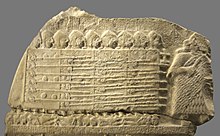Wikipedia:WikiProject Military history/News/May 2024/Book reviews
|
White Sun War: The Campaign for Taiwan - Mick Ryan |

![]()
![]()
![]()
![]()
![]()
- By Nick-D
White Sun War is a techno-thriller novel written by Mick Ryan, a retired Australian Army Major-General. Ryan has written several books on modern and future warfare and is a fairly prominent commentator on the war in Ukraine. I think that this is his first work of fiction, and it covers a hypothetical Chinese invasion of Taiwan in 2028.
The book's structure and purpose is consciously modelled on the Cold War era novel The Third World War that was written by retired British General John Hackett and a team of others. Hackett sought to illustrate what he saw as the weaknesses of NATO forces at the time and how they could be addressed by writing in the style of a non-fiction historical retrospective discussing how the NATO forces managed to defeat a Soviet attack due to a last-minute rearmament effort. The book is rather obscure now, but was influential at the time. Like Hackett, Ryan uses a non-fiction style to discuss what he sees the nature of war as being likely to be in the near future and advocate for reforms to better defend Taiwan.
This makes for a thriller that's a step above most in the genre. As Ryan is an expert in modern and future warfare, I found his depiction of a war fought increasingly by and between robots to be very convincing. One of the themes of Ryan's writing on the war in Ukraine is how it has led to rapid changes in the Ukrainian and (to a lesser extent) Russian militaries, and his discussion of how a war in Taiwan would change the militaries involved is also well considered. The underlying scenario behind the novel, including the path the war takes, is convincing and fairly free of the paranoia that some commentators indulge in (Ryan has no time for the view that the Chinese military is invincible, for instance).
The main weakness of the book is that it's focused almost solely on the perspectives of the American and Chinese militaries. Despite most of the action being set in Taiwan, there are very few Taiwanese characters, and the actions of the Taiwanese military and government are treated as being of little importance. This is quite odd, and disappointing. Some of the plotting is a bit clunky, and the book would have benefited from better editing - for instance, one of the main characters commands a US armoured cavalry troop in some chapters and a squadron in others.
Overall, this is a worthwhile read, and hopefully encourages other works in this style.
Publishing details: Ryan, Mick (2023). White Sun War: The Campaign for Taiwan. Philadelphia: Casemate. ISBN 9781636242507.
Gwynne Dyer - The Shortest History of War |
![]()
![]()
![]()
![]()
![]()
- By Hawkeye7

This book is the latest in the "shortest history" series - two-hundred-page paperbacks that aim to give the casual reader a sweeping overview of a particular field. Compressing an entire field into a brief summary is extremely difficult, as many editors who have tried writing high-level Wikipedia articles have found out. I very much enjoyed Andrew Leigh's The Shortest History of Economics (2024), which takes a wide-ranging and comprehensive overview of economics. (And which I recommend highly, although I disagree with him when he dips into military history.)
Unfortunately, Gwynne Dyer's shortest military history is inferior in every way. The quotations in grey do not contain the interesting sidelights of Leigh's book but quotations that generally add little. Most of the book is warmed-over from War (1985), and its forty-year old content shows its age. He make use of S. L. A. Marshall's Men Against Fire (1947) without noting the controversy about it in the 1990s. The book is perhaps understandably very Eurocentric, and the rare attempts to redress this do not come out too well. His mention of the "Murrgin" Australian Aboriginal people could have been corrected if he had looked it up in the Wikipedia, which would have also raised some red flags on his reliance on 1970s (and earlier) sources.
I found the part about the origins of war pre-dating mankind to be the most interesting, and this section seemed fresher than the others, possibly because it was based on 21st century sources. In contrast, the section on nuclear warfare shows its age; although updated (but with all the footnotes still to 1980s works), the very amount of space devoted to nuclear warfare reflects a 1980s sensibility. The mention of the investigation of Australian war crimes in Afghanistan seems ham fisted, overly long and oddly out of place, especially when the reader is not informed that the whole thing has been swept under the rug. A more coherent and expansive section on war crimes is called for. (The sarcastic statement about no war crimes being committed by the victors of World War II should be replaced by one explaining to the readers that a deliberate policy decision was taken not to prosecute them. An explanation of 1940s sensibilities - that the biggest crime was starting the war - would also help.)
The book is a very easy read, but fails to provide the reader with the promised introduction to the subject.
Publishing details: Dyer, Gwynne (2021). The Shortest History of War. Carlton, Victoria: Black Inc. ISBN 978-1-76064-169-6. OCLC 1262608861.
Christopher Blattman - Why We Fight |
![]()
![]()
![]()
![]()
![]()
- By Hawkeye7

Christopher Blattman, the author of this book, is an economist and the Ramalee E. Pearson Professor of Global Conflict Studies at the University of Chicago's Harris School of Public Policy Studies. He has considerable hands-on experience with international development efforts, an area he acknowledges is littered with failures. In this book he takes an economic approach to conflict, backed up with some useful psychology and mathematical game theory. The scholarship is sound, and Blattman is forthright about current controversies in these fields.
A major theme of the book is that while we hear about wars (and military history is the study of them), it is peace that is the norm and war that is the exception. Even bitter enemies prefer negotiation and compromise to conflict and for good reason: war is inherently costly and destructive, and the outcome is uncertain. Blattman then puts forward five reasons why wars erupt anyway:
- Unchecked interests: When the people in charge do not have to bear the costs, are not accountable for their actions, and may stand to gain personally even from a losing conflict.
- Intangible incentives: When people have ideological or religious motivations that transcend or outweigh real-word considerations in their mind.
- Uncertainty: In a game where players have limited information about each other, but may attempt to mislead, the optimal strategy is to call the bluff on occasion.
- Commitment: The situation where one side is strong now, but the other is likely to overtake in the future, provides an incentive for pre-emptive action. In some cases, this may be their best choice.
- Misperceptions: Psychological factors such as overconfidence that impair judgement.
Blattman is at pains to note that peace does not mean ending poverty, promoting democracy, or solving social problems. In an interesting sidelight on national development, he considers the case of a country three-quarters of the way down the development index. How long would it take to get half way, like Mexico or Turkey? At the current rate, never; if it becomes one of the world's top-ten performers, about fifty years (p. 292). He has practical advice on nation-building and peacemaking. These include setting sensible goals, accepting inevitable failures, and not encouraging politicians to promote simple solutions to wicked problems.
I found this a thought-provoking book, and highly recommend it.
Publishing details: Blattman, Christopher (2023). Why We Fight. London: Penguin Books. ISBN 978-0-241-98925-8. OCLC 1378631583.
Matthew Connelly - The Declassification Engine |
![]()
![]()
![]()
![]()
![]()
- By Hawkeye7

Although the government produces many times more documents than ever before, the declassification system is woefully underfunded. As a result, the declassification of documents lags years behind and is slowly getting worse. The backlog currently sits art around 600 million documents, and at the current rate it will take 250 years to process the Freedom of Information Act requests for the George W. Bush Presidential Center. Without documents, we literally face the end of history. Very little is being written about the 1980s and 1990s for want of sources.
One solution is instead of declassifying documents by hand, having them processed automatically using artificial intelligence (AI). This is possible because documents are now being released in electronic form. AI programs can be trained using documents that have already been declassified. History has always been a humanity, but the use of AI gives it aspects of a social science. Data mining documents can produce interesting results. For example, censored passages can be compared with different versions of the same document, thereby revealing the censored text. A more sophisticated search can be employed to discover unexpected connections. Various code names appear, although their meaning may still be classified. One commonly censored name, for example, turns out to be that of William D. Pawley.
There is little that is new in the book, but it is a fun read. There are sections about the attack on Pearl Harbor and the Manhattan Project, and how, during the Cold War, while the Americans struggled to learn about the Soviet Union with spy overflights, the Soviets bugged the National Security Agency's headquarters and read the Americans' codes. A running theme is that secrecy tends to protect officials more than secrets.
Publishing details: Connelly, Matthew (2024). The Declassification Engine : What History Reveals about America's Top Secrets. New York: Vintage Books. ISBN 978-1-101-97367-7. OCLC 1389339442.
Recent external reviews |

Lange, Matthew (2017). Killing Others: A Natural History of Ethnic Violence. Ithaca, New York: Cornell University Press. ISBN 9781501704871.
- Khachadoorian, Angelle (April 2024). "Review of Lange, Matthew. Killing Others: A Natural History of Ethnic Violence". H-War, H-Net Reviews.
Brown, Les (2024). British Light Cruisers. Town, Colony and Later Classes. Barnsley, United Kingdom: Seaforth Publishing. ISBN 978-1-3990-3753-2.
- Hobbs, David (13 April 2024). "British Light Cruisers". Australian Naval Institute.
Delmont, Matthew F. (2022). Half American: The Epic Story of African Americans Fighting World War II at Home and Abroad. New York City: Viking. ISBN 9781984880390.
- Nagel, Amanda M. (19 April 2024). "Half American". Military Review. Army University Press.
Rowland, David (2023). Green Light, Go!: The Story of an Army Start Up. Virginia Beach, Virginia: Koehler Books. ISBN 9798888241530.
- Finney, Nathan (1 April 2024). "How to Build a New Unit From Scratch". Association of the United States Army.
|


